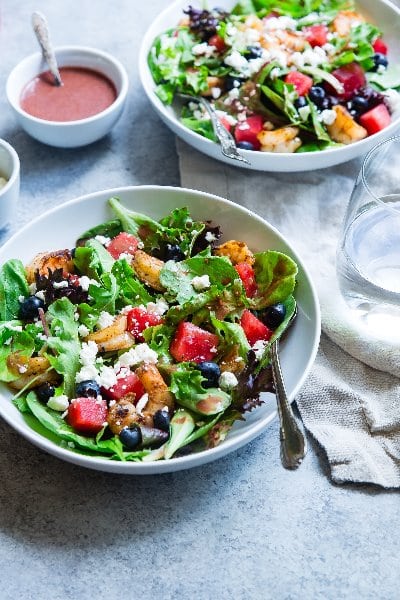Part Two: Nutrition
Part Two: Nutrition
I introduced the four key areas to support a healthy lifestyle in my blog Best Care for Women for Birth and Beyond. These important areas include:
2) Nutrition
3) Exercise
4) Mindset/Thoughts
While these elements are important for everyone, they are especially important for women who are pregnant, plan to become pregnant, or have recently given birth. Last week we covered chiropractic care. This article will focus on the specific and special nutritional needs we have as women.
What types of foods should I be eating every day?
When you go to the grocery store, a good rule of thumb is to stay along the perimeter of the store. This is where all the fresh whole foods and produce are located. Avoid the inner aisles where the processed foods are. When choosing a food, check the label. If you can read and understand the list of ingredients on the label, it is more likely to be a good food choice.
- Quality meats – Incorporate a variety of meats into your diet such as chicken breast, salmon, shrimp, mackeral, sardines, anchovies, tuna, lean (99%) ground turkey, and lean (95%) beef. Meats are full of protein, zinc, iron, B-vitamins, and building block for brain development. It is best to eat grass fed meats that have no added hormones. If you are vegetarian or vegan you can replace these with other good protein sources such as quinoa, green peas, edamame, tofu, chickpeas, beans, and nut butters.
- Vegetables – Spinach, broccoli, carrots, beets, kale, cauliflower, cucumber, green beans, asparagus, zucchini, romaine lettuce, or whatever veggies you can find in season. Fermented veggies are full of good probiotics and enzymes.
- Fats – Avocado, nuts, seeds, ground flaxseed, salmon, chia seeds, eggs, olives, coconut oil, olive oil. These are healthy fats and they are very important for our body’s metabolism, brain development, immune system, hormone production and taking in the nutrients that we eat.
- Fruit – Apples, grapes, pineapple, strawberries, blueberries, pomegranate, mango, cherries or whatever fresh fruits are in season. While fruits are healthy, be careful not to each them in excess because they do contain a lot of natural sugars.
- Limit grains – When needed, choose good sources of whole grains such as white rice*(a couple times a week – see note below), quinoa, farro, whole oats, sweet potato, and ezekial bread because grains can increase the amount of inflammation in the body.
- Limit pasteurized dairy – Moderate the amount of milk, cheese, butter, and yogurt again because these types of foods increase inflammation in the body. Use grass fed dairy and ghee when possible.

[ebs-notification type=”alert-info” close=”false” ]
Helpful Tips for Expectant Mothers
-
- Stay hydrated – Drinking plenty of water is important! The amount of blood flowing through your body increases when you are pregnant, and you need more fluids to balance the extra blood. Add lemon to the water to help with nausea and decrease swelling.
- Eat frequently throughout the day – During pregnancy hormone levels change and eating regularly helps to regulate them; you need more of everything (not a lot more) because you need extra nutrients, vitamins and minerals for you and your baby. The baby will take what it needs from you and if you don’t eat appropriately your body will be depleted.
- Eat your healthiest food when you are feeling the best – No one is perfect or can eat perfectly all of the time. If your body is craving something don’t beat yourself up or try to resist it. Listen to your body. It is telling you what it needs. Aim for eating your most nutritious meal when you are feeling your best. If you feel best in the morning eat it then. If you feel best around two o’clock eat it then. Remember, if you feel great first thing in the morning you don’t have to eat a breakfast meal — you can eat any healthy meal.
- Eat protein (lean meats, eggs, nuts, beans, protein shake) at the same time you take your prenatal vitamin – This will help cut down on nausea and help you feel better.
[/ebs-notification]

Although, food is the best way to get all of the vitamins and minerals we need it is hard to do that. It is a good idea to supplement and make sure you are at least meeting the requirements below.
What should my prenatal vitamin contain?
- L-methylfolate – This is the form of folic acid that our bodies are able to use. Many women’s body aren’t efficient at converting the folic acid into methylfolate due to genetics. This is a very important nutrient for development of cells and the spinal cord where all life originates in the baby. Dark, green, leafy vegetable also contain folate. No folic acid supplements. Make sure it is methylfolate.
- Calcium – Found in foods such as kale, spinach, leafy greens, collard greens, broccoli, sesame seeds, yogurt, sardines, and is beneficial for the development of bones in the baby. If we don’t have enough in our diet the calcium from our own bones will go to the baby. Calcium citrate is the easiest form for our body to use.
- Fish oil (EPA and DHA) – Also known as omega-3 fatty acids are for brain development and decreasing inflammation. These are also important for healing postpartum and are found in cold water, fatty fish — salmon, mackeral, and sardines.
- Vitamin D3 – This vitamin is necessary for immune function. It is also needed for calcium to be absorbed. Try to spend 30 minutes a day with sunlight exposure or eat egg yolks, fatty fish, and beef liver.
- Probiotics (Lactobacillus, Bifidobacterium) – Essential good bacteria for gut health and immune health. Can also be found in yogurt, fermented foods and vegetables.
- Magnesium – It is necessary for bone and heart health. Individuals who lack this mineral can have increased inflammation and possibly increased blood pressure. It can be found in sesame seeds, sunflower seeds, and almonds.
- Vitamin K2 – Its job is to take the calcium out of our blood and deposit it in our bones instead of our blood vessels. It makes our bones stronger. Menaquinone-7 is the best used form found in sauerkraut and yogurt. Additional Vitamin K can be found in chicken, beef liver, and eggs.
- Iron – It is best to get this mineral from your diet instead of supplementing unless you are anemic. Dark leafy greens, meat, fish and eggs all contain iron. You may not need any supplementation. Consult with your doctor.
These are the basics to get you started with healthy eating. If you have any questions, please comment below. Stay tuned. Next week we will be going over the next part in our series–Part Three Exercise!
Note: *Usually brown rice would be a healthier choice than white rice because white rice is the processed version. However, white rice has lower amounts of phytic acid. Additionally, the white rice is fortified with folate the good form of folic acid.

